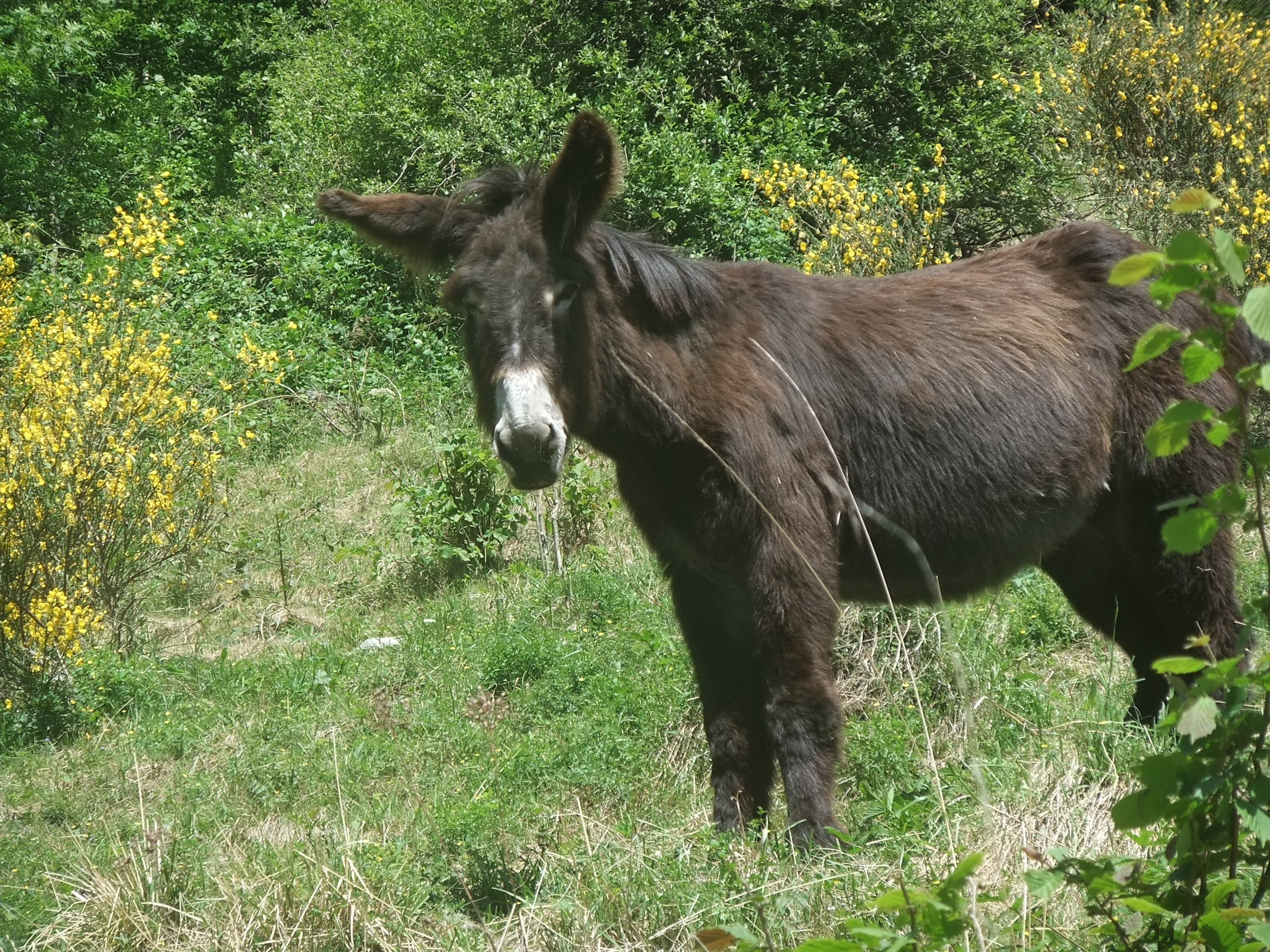Welcome to 'Hear English', we provide English listening resources for free. You can see our blog at http://hearenglishhere.blogspot.com/. This is our first series of blogs and webcasts which provide an audio clip and a written script to go with it (these can all be found on our blog). They follow our adventures on a 3 week working holiday on a farm in France. This third episode for intermediate level listeners is about donkeys.
Donkeys
“Have you been to see my donkeys yet? The three smaller ones are lovely, but the larger one, he’s a bit mad.”
“We walked past their field yesterday and we stopped to stroke them for a bit, but we didn’t realise they were yours.”
“Yes, they came with the house, and I thought I’d keep them, I’m really glad I did because they’re worth their weight in gold, even though they can sometimes make a racket.”
“Everyone I know with donkeys just keeps them as pets, I’ve never met anyone who makes money out of them, is their milk valuable?”
“Very, some people just sell it to drink, it’s very expensive but also very good for people with allergies, and it’s a healthy alternative to cow’s milk, because did you know that cow’s milk is very bad for you.”
“Cow’s milk is bad for you? What does it do?”
“Its awful for you, it’s high in fat, and low in iron and protein, and it causes anaemia, cramp, osteoporosis, heart disease, gastrointestinal bleeding, non-hodgkin’s lymphoma, baby colic…”
“Baby colic? But that’s a childhood disease. Is cow’s milk really bad for healthy people drinking a sensible amount for their age, as part of an otherwise healthy diet and lifestyle? It surely can’t give me colic, can it?”
“Um, I’m not sure, all I know is that it’s really, really bad for you, really bad, and donkey’s milk is better, but it’s expensive. You can also make it into soap, it’s meant to be very good for the skin; people like the idea of bathing in it like Cleopatra. You can also do donkey trekking, you can make a lot of money from that.”
“So do you make a lot of money from the milk, the soap and the donkey trekking?”
“No, we don’t milk the donkeys, and we’re not insured for donkey trekking.”
“Oh…um, then how are they ‘worth their weight in gold’?”
“They keep the grass in their field short, and stop the weeds from taking over.”
“I see, and why do you need the grass short, what do you use the field for?”
“Nothing, its just for the donkeys.”
“Right…”
“But it means that we don’t have to cut it, and we don’t have to look after the donkeys at all, they feed themselves off the grass, and can drink straight from the stream.”
“When we walked past we saw that the donkeys couldn’t get to the one stream because there was an electric fence in the way and we wondered what they drank, is there another stream that we didn’t see?”
“No there’s no other stream. That is odd though, I wonder, if they can’t get to the stream, what on earth have they been drinking?”

